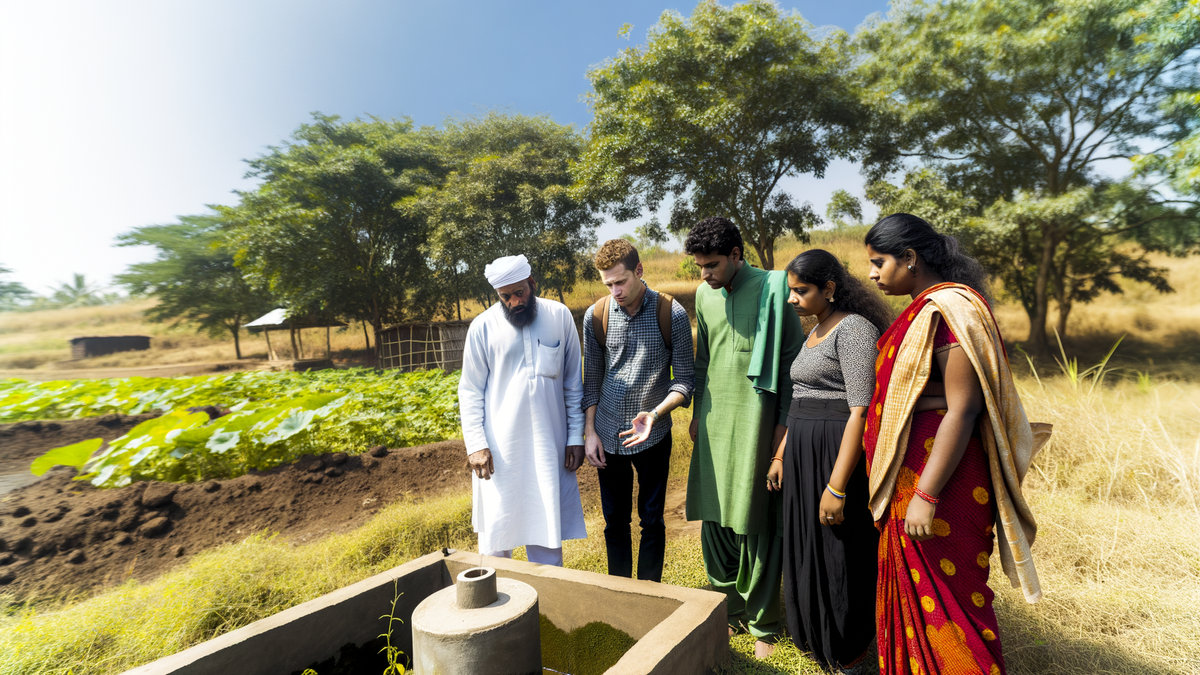
In an ambitious move to address the pressing issue of water scarcity and promote sustainable water practices, the government, in collaboration with various non-profit organizations, has launched a series of special programs and field visits aimed at raising awareness among the populace. This initiative seeks to bridge the gap between knowledge and action concerning water conservation, tapping into the rich history of traditional water management practices while incorporating modern, sustainable solutions.
The initiative, which is set to unfold across several states in India, targets schools, colleges, and local communities, emphasizing the critical role that each individual plays in the conservation of water. Educational workshops, interactive seminars, and hands-on field visits to successful water conservation projects are at the heart of this awareness campaign, designed to inspire and empower citizens to take actionable steps towards sustainable water use.
Historically, India has been home to a vast array of ingenious water conservation methods, tailored to the unique geographical and climatic conditions of each region. From the ancient stepwells of Rajasthan to the intricate canal systems of Tamil Nadu, traditional practices have long underpinned the sustainable management of water resources. However, rapid urbanization, increased industrial demand, and inefficient water usage have placed an unprecedented strain on India’s water supply, necessitating a concerted effort to rejuvenate these time-honored methods while integrating contemporary conservation techniques.
“Water is not just an environmental issue, but a social and economic one that affects every aspect of our lives,” remarks an environmental expert involved in the program. “By instilling a deep understanding and respect for water in the younger generation, we are laying the groundwork for a future where water is managed wisely and sustainably.”
The field visits, a cornerstone of the program, provide a unique opportunity for participants to witness firsthand the impact of successful water conservation practices. Sites include revitalized rainwater harvesting projects, sustainable agricultural operations, and urban water management models. These visits are intended to not only educate but also to demonstrate the tangible benefits of adopting sustainable water practices, showcasing improved agricultural yields, enhanced biodiversity, and bolstered water security.
A crucial component of the campaign is its focus on collaborative efforts, bringing together government bodies, educational institutions, community leaders, and local NGOs. This multifaceted approach underscores the idea that effective water management requires collective action and shared responsibility. By fostering a sense of community and collaboration, the initiative aims to create a potent force for change, driving forward India’s agenda for sustainable development.
As the program rolls out across the nation, the hope is that these efforts will not only mitigate the immediate challenges posed by water scarcity but also instill a lasting ethos of conservation and sustainability. In a country where water is revered not just as a resource but as a lifeline, the message of conservation carries a profound significance. Through education, engagement, and collaborative action, India is charting a course towards a more sustainable and water-secure future.









